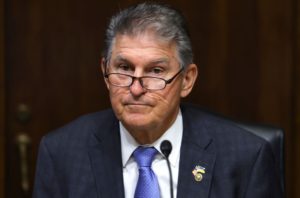In the mad dash leading up to Christmas 2022, an unlikely suspect decided to play Santa and will allow a little jingle to remain in the pockets of millions of Americans. The IRS announced it would delay a new tax policy found in the fine print of the Democrat-backed American Rescue Plan requiring e-commerce platform users to report transactions over $600 per year on Venmo, PayPal, and Zelle.
Venmo, PayPal Panic Eases
 Previously, electronic payment platforms were required to supply users with a 1099-K form only for amounts over $20,000 and more than 200 transactions. With such a drastic drop in the reporting threshold, many small-business owners and those who earn extra income from side entrepreneurial enterprises went into panic mode.
Previously, electronic payment platforms were required to supply users with a 1099-K form only for amounts over $20,000 and more than 200 transactions. With such a drastic drop in the reporting threshold, many small-business owners and those who earn extra income from side entrepreneurial enterprises went into panic mode.
Micro businesses have exploded in recent years, and Americans increasingly use e-commerce sites to earn extra income. Millions of transactions come from umbrella vendors such as Poshmark and Etsy – themed online platforms where folks can sell everything from used clothing to original works of art.
The announcement came as a shock to the system and represented a classic volte-face from the Biden administration, which has repeatedly claimed its tax policies are aimed at only the wealthy. However, Venmo and PayPal transactions are typically used by house cleaners, handymen, and the like. According to The New York Times, “the I.R.S. emphasized that the law was ‘not intended to track personal transactions such as sharing the cost of a car ride or meal, birthday or holiday gifts, or paying a family member or another for a household bill.’”

Joe Manchin (Photo by Kevin Dietsch/Getty Images)
Sen. Joe Manchin (D-WV) led the charge to delay the new 1099-K reporting for at least another year. “This will allow Congress more time to correct this regulation that puts undue burden on our small businesses,” asserted the West Virginia senator. It’s one of those classic situations where the government created the problem and will now have to find a way to clean it up.
Economics Editor Andrew Moran, who first wrote about this messy situation for Liberty Nation, responded to this latest news by saying, “I think it is fair to say that there was tremendous blowback after this announcement that the IRS was most likely strongarmed into hitting the pause button on this ridiculous policy. Remember, President Joe Biden and the Democrats routinely said they were targeting millionaires and billionaires, not someone selling his grandfather’s stamp collection on eBay for $601.”
Ostensibly the reason for the delay is widespread confusion over what counts as taxable and what doesn’t. Times’ commenter Margaret H. of Carmel, CA, shared a classic example of uncertainty:
“I shop for a few elderly people who then pay me back through venmo. A few Costco runs and it’s $3-400 each time. Is the IRS going to ask me to prove that the ‘payback’ isn’t income? The older folks keep the receipts. Do I stop my charity work, so I’m not audited by the IRS? So now everyone suffers! Focus on Billionaires!! Instead of the masses already suffering because of inflation, etc.”
It has been reported that this measure would add some $8 billion for a projected “$7 trillion ‘tax gap’ of revenue” over the next ten years. But as F. Ahmed wrote in The Times’ comments section, “Taxing the ‘mom and pop’ transactions to close the $7 trillion ‘tax gap’ in order to fund our ballooning welfare state hurts every working American family.”
Do you have an opinion about this article? We’d love to hear it! If you send your comments to [email protected], we might even publish your edited remarks in our new feature, LN Readers Speak Out. Remember to include the URL of the article along with your name, city, and state.
Please respect our republishing guidelines. Republication permission does not equal site endorsement. Click here.

